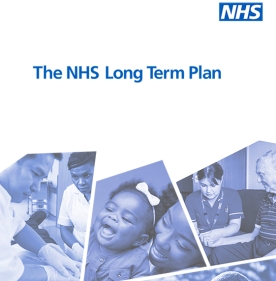Patient-initiated appointment systems enable patients to request a medical appointment when they feel it is needed. It does not completely replace the need for traditional scheduled follow-up appointments (arranged by the clinician), but the new system could reduce the number of those appointments allowing flexibility in the outpatient health care system to deal with new diagnoses as they emerge and allow quicker access to care when needed – thus making services more sustainable without losing the quality of care. Patient-initiated appointment systems provide patients with an initial point of contact through a telephone advice line which enables them to speak to a specialist nurse who can give them advice on their condition or can arrange for an appointment with the relevant clinician as necessary.
In April 2020 we published a systematic review through Cochrane on ‘Patient‐initiated appointment systems for adults with chronic conditions in secondary care’. The review compared patient‐initiated appointment systems to more standard consultant‐led appointment systems. We wanted to know if these systems are safe for patients to use, if patients and clinicians find them appropriate and satisfactory to use, how they may impact patients physical and mental health, and how they may impact on health service resources and costs.
This review found 17 studies (all randomised controlled trials) that had implemented PIAS across six broad health conditions: cancer (breast, prostate, endometrial), rheumatoid arthritis, asthma, chronic obstructive pulmonary disease, psoriasis and inflammatory bowel disease (including ulcerative colitis). Most of these studies were conducted in the UK (nine) but Sweden (three), Denmark (three), Finland (one) and the Netherlands (one) were also represented.
Whilst the certainty of the evidence was low, the results suggest that patient‐initiated appointment systems may have little or no effect on patient anxiety, depression and quality of life compared to consultant‐led appointment systems. Aspects of disease status, adverse events and patient satisfaction also appear to show little or no difference. There may also be little or no effect on service utilisation in terms of contact with health services but there is uncertainty about the impact on costs.
 Some key areas were identified that need further exploration, in particular identifying: which aspects of the patient-initiated system are associated with effectiveness; variations in the benefits and experiences of PIAS due to population characteristics such as rurality, disability, access to transport, gender, age, length of time living with their condition and type (and number) of conditions. Future work on PIAS would also benefit from better reporting of outcomes such as missed appointments, adverse effects, patient and clinician satisfaction and costs to the patient as well as the health service, as well as barriers and facilitators of implementation.
Some key areas were identified that need further exploration, in particular identifying: which aspects of the patient-initiated system are associated with effectiveness; variations in the benefits and experiences of PIAS due to population characteristics such as rurality, disability, access to transport, gender, age, length of time living with their condition and type (and number) of conditions. Future work on PIAS would also benefit from better reporting of outcomes such as missed appointments, adverse effects, patient and clinician satisfaction and costs to the patient as well as the health service, as well as barriers and facilitators of implementation.
Whilst this area of care was already under review with the publication of the NHS Long Term Plan (2019) and the recommendations from the Royal College of Physicians (2018) report ‘Outpatients: the future – adding value through sustainability’ the changes that health care services have seen in the last few weeks and months are likely to make this area of health care provision a priority once the peak of the Covid-19 pandemic has subsided.
In this series of blogs we consider the role of patient initiated appointment systems from the perspectives of the service user, the clinical nurse specialist, the consultant, the service manager, and the health commissioner

You can find previous work on PIAS conducted by the Applied Research Collaboration South West Peninsula on their website. These include two previous reviews and an implementation study.
A briefing paper of the Cochrane systematic review is also available. And you can also listen to a podcast produced by Cochrane that features two of the authors.




5 Pingback